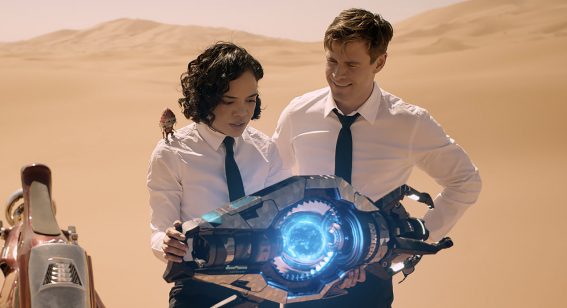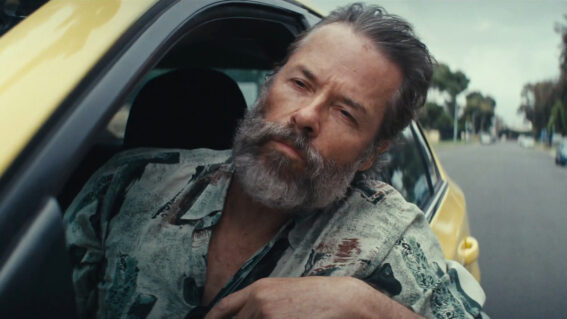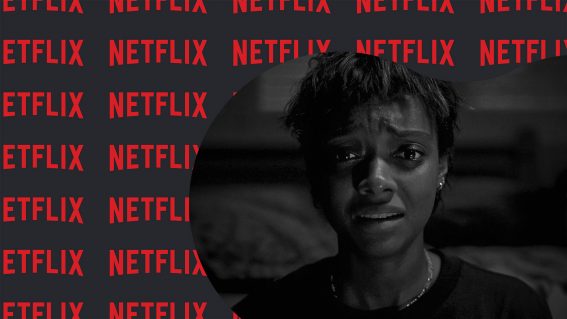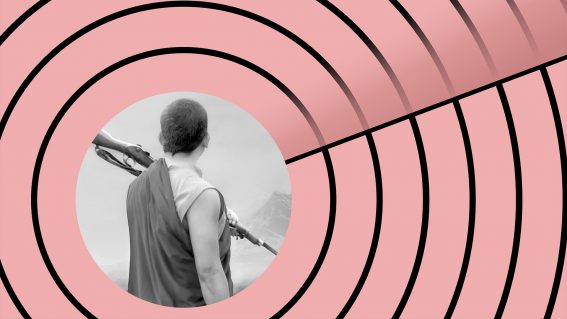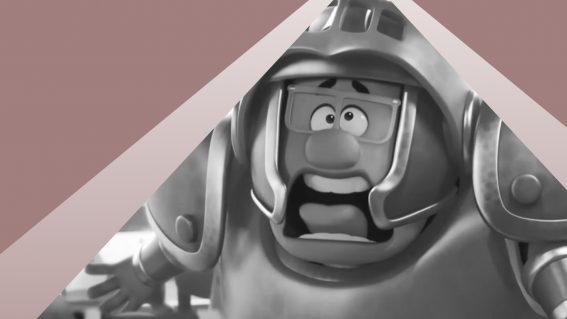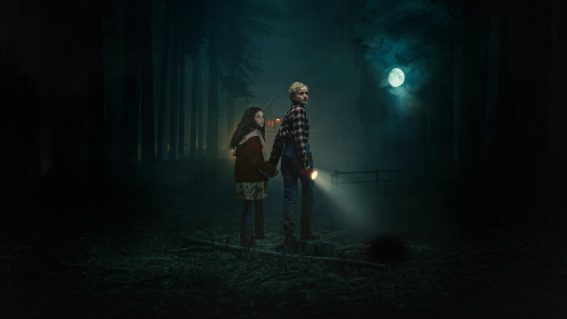Avenue 5 just became TV’s most weirdly relevant comedy series
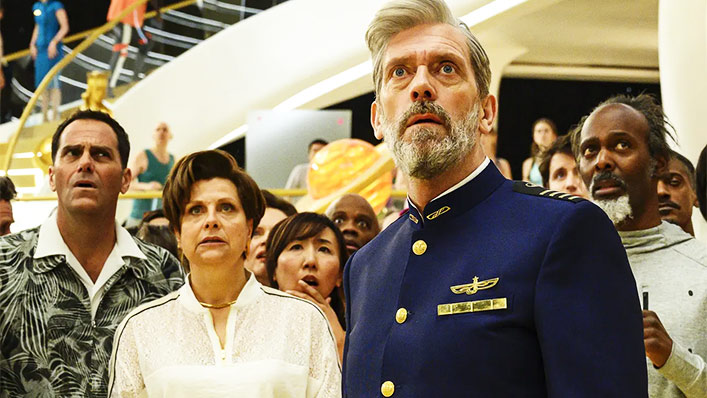
Armando Iannucci’s latest comedy follows a community of socially isolated people who can only re-enter the outside world at an undetermined later date. Critic Luke Buckmaster asks: does that sound familiar to you?
A community of people are forced to remain inside, sharing confined spaces for an uncertain period of time before being able to resume normal day-to-day life. There are numerous estimates of how long this period may be – but they change, and it soon becomes clear nobody fully understands the scale of the problem or the correct path to a solution. There are issues around limited resources, including health and cleanliness, leading to conversations about “essential” versus “non-essential” items.
Is this reality or make-believe?
See also
* Where to watch Avenue 5
* All new streaming movies and series
Weirdly, both. You are no doubt fully aware of the chaos and upheaval being caused by the outbreak of coronavirus, which brought with it popularisation of concepts that until very recently would have sounded relevant only to the intensely introverted and the hermitlike – such as self-isolation and social distancing.
You may not be aware that the paragraph above also describes circumstances depicted in Avenue 5, a new sci-fi comedy series created by the great auteur Armando Iannucci – whose speciality is bone-dry British wit and diabolically snarky dialogue (on glorious display in films such as In the Loop and Death to Stalin, and TV shows such as Veep and The Thick Of It).
I found the new series good but far from great, with a moreish quality but also a surprising number of jokes that fall flat, despite what feels like a perverse persistence to try and make them work. But head elsewhere for a critique; I’m going to spend the rest of this article exploring why Avenue 5 (like the freakishly well-timed Netflix thriller The Platform) fits the current moment eerily well.
Nobody could have predicted it would become so weirdly relevant
When Avenue 5 premiered on HBO in January, nobody could have predicted it would become so oddly relevant to the contemporary human experience – the very contemporary experience, as in, the one happening right now – only a couple of months later.
Avenue 5 is the name of a luxury space ship that experiences a malfunction mid voyage, sending it massively off course. The trip was supposed to take eight weeks, but the reassessed time frame is more like three years.
At first it doesn’t seem so bad. There are yoga classes, beautiful rooms and a fancy restaurant with tiramisu – all the desired creature comforts. However it soon becomes clear that supplies were intended to last two months, not three years, posing issues not just with food but other resources one generally considers to be, erm, essential – such as oxygen. Before you know it, the ship’s passengers themselves are being discussed in terms of “essential and non-essential personnel.”
The captain is a symbolic stand in for Trump or Morrison
Captaining the ship, sort of, is the charismatic but increasingly frazzled Ryan Clark (Hugh Laurie). I say “sort of” because one would not wish to overstate Clark’s competence by implying that he is necessarily captaining (least of all in control of) anything. In the present moment Clark could easily be interpreted as a symbolic stand-in for figures such as Donald Trump or Scott Morrison, who have demonstrated themselves to be as useful in a crisis as a hat made of ice during a heatwave.
If you think that sounds harsh, you haven’t watched any videos of Trump recorded at any point in the last few years. And you weren’t aware that Morrison responded to the coronavirus outbreak by declaring that he would be attending the footy (which is progress, of a kind, since during the last crisis – the bushfires – he went on a holiday to Hawaii).
Leadership that doesn’t have a clue
Before sitting down to write this, I stumbled on this tweet from the political commentator Bernard Keane, who, responding to the cancellation of what was scheduled to be the last sitting of Parliament for the season, summed up a sentiment shared by many: “between this, the Centrelink/MyGov debacle and the Ruby Princess stuff-up, there’s a real sense that our ‘leaders’, so eager to scold us for not obeying them, haven’t got a clue.”
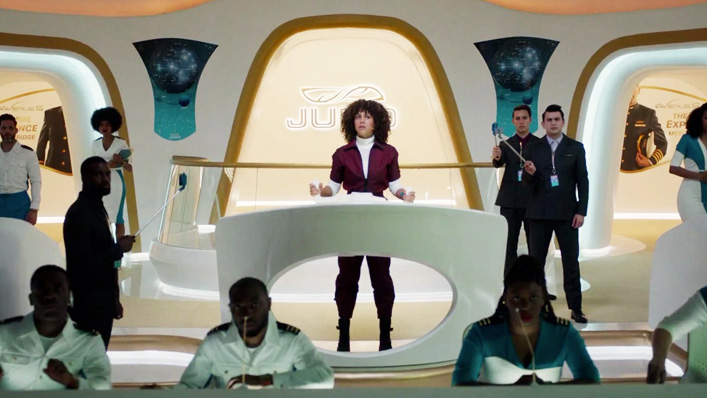
They haven’t got a clue in Avenue 5 either. Failure of leadership is a recurring theme in Iannucci’s work, the concept ramping up in this series to make a broader point, expressed in an early plot reveal, about exactly who (or what) is running the show.
This reveal – no spoilers – is funny but when you think about it, it stings. Reflecting on it later, I was reminded of the words of Mike Barrett, executive director of science and conservation at the WWF, who addressed the international response to the climate crisis by simply saying: “We are sleepwalking towards the edge of a cliff.”
The idea that the captain is asleep at the wheel is not so much a matter of comedy being tragedy plus time: the famous explanation of humour relating to, say, something like falling down a flight of stairs: not funny during the fall but hilarious afterwards. It’s more like comedy is tragedy plus distance.
It’s funny from afar, maybe; it’s distressing if you’re on board. And we are all, as a society, on board in one sense or another. Maybe the ideal audience for the modern human experience is an alien species, watching from afar – presumably in a mixture of terror and bewilderment.


